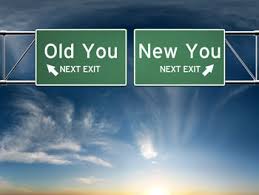|
What is Life Coaching (and What is it Not)?
Coaching is unlocking a person’s potential to maximize his/her own performance. A life coach is someone who offers guidance or advice regarding challenges, decisions, or questions in your life. The impetus for seeking a life coach often comes when a person feels stuck. To resolve this, a life coach will draw on approaches from psychology, counseling, sociology, and sometimes business, to help individuals set and pursue personally meaningful goals. These goals may center on several possible areas of development including relationships, career progression, creative pursuits, education, and more. In contrast, life coaching is not therapy or counseling, which pairs a mental health professional with a client seeking guidance around mental wellness. Life coaching also differs from mentorship and training, whereby a professional is paired with a more experienced professional, often in a workplace or industry setting. Methodology/approaches: Life coaching has grown out of decades of research in social psychology, clinical psychology, and professional coaching. The practice primarily has its roots in humanistic and transpersonal psychology (Williams, 2012). 1. Transformational Learning Transformative learning theory argues that humans hold a specific worldview informed by their experiences. This worldview acts like a frame of reference, which affects how we interpret events, assign meaning to the things that happen to us, and interact with our environment (Mezirow, 1997). Importantly, these frames of reference are elicited and operate unconsciously. This means that if we do not explore our frames of reference and understand our ingrained thought patterns, we remain at a disadvantage when we attempt to learn how to grow and change habitual behavior. Developing an awareness of how we unconsciously process events is central to life coaching philosophy, and is often critical for achieving transformative change. 2. Emotional Intelligence The theory of emotional intelligence (or EQ) posits that there are multiple types of intelligence beyond the commonly held idea of intelligence as a cognitive resource. Emotional intelligence refers to our “ability to perceive and express emotion, assimilate emotion in thought, understand and reason with emotion, and regulate emotion in the self and others’’ (Mayer, Salovey, & Caruso, 2000, p. 396). Those high in emotional intelligence are thought to be effective at managing their own emotions, and are good at identifying and considering others’ emotions. Conversely, those low in emotional intelligence rarely stop to think about what they are feeling, and are more likely to misread others’ motives and intentions. Theories of emotional intelligence have permeated many psychological fields of inquiry and practice, including life coaching. Specifically, life coaches use their knowledge of emotional intelligence to help clients recognize emotions as valuable sources of information (e.g., compassion). Life coaches can also tailor their teachings about emotional intelligence to apply to a range of personal and professional spheres. These can include management and leadership coaching, intimate relationships, and friendships/social networks. 3. Cognitive-Behavioral Theory Cognitive-behavioral theory is grounded in the combination of behavior theory and cognitive theory. The principles of the theory are widely used in therapeutic settings to help clients understand their thoughts and change their reactions and behaviors (Benjamin et al., 2011). A key model stemming from cognitive behavioral theory often drawn upon by life coaches is the Thought Model. This theory describes a process whereby activating events (Circumstances) (A) trigger thoughts (B), which lead to feelings (C) pertaining to our emotions and subsequent behaviors. This is the process creating the current results in our life (D) Life coaches are skilled at helping clients identify how distorted or irrational thoughts or beliefs stemming from activating events (circumstances) may have negative consequences. They are also skilled at intervening by helping clients to challenge and change problematic thoughts/beliefs in order to facilitate more positive consequences, such as lessened anxiety or increased adaptivity. 4. Experiential Learning Theory Experiential learning theory is a model of adult learning that essentially argues the benefits of learning by doing. The theory posits that individuals learn through a cyclical process of concrete learning, reflective observation, abstract conceptualization, and active experimentation (Kolb, Boyatzis, & Mainemelis, 2001). A life coach can facilitate all phases of this cyclical process by encouraging clients to reflect on their actions and their consequences. For instance, within the context of the The Thought Model, coaches can invite clients to experiment with adopting new, more adaptive, thoughts in response to challenging activating events. The hands-on principles of experiential learning apply well to coaching relationships, wherein the client is positioned as the driver of the relationship and the focus is on his/her day-to-day behaviors that serve as opportunities for experimentation and learning. The client experiences change in life results, through change of behavior. 5. Life Coaching as a Science While each of these theories has had a significant influence on the practice of life coaching, not all coaches draw explicitly from this literature alone. Paul Pettit has designed a program (MBLC) which combines practices from some of the theories mentioned above, with additional modalities drawn from phenomenology, neuropsychology, and energy-based practices including naturopathic reiki & reflexology. Disclaimer:The information provided on the BMS website, associated paraphernalia, and the programs & therapies offered, have been formulated through research conducted from a variety of evidence-based resources. This can include, but is not limited to, the tools & techniques offered in mindfulness practices, buddhist practices, meditation practices, reiki therapy, business practices, yoga practices, and exercise programs etc. When participating in our program/s or therapies, we cannot guarantee that you will have the same experiences or results as the founder of BMS, it's therapists / practitioners, or current and previous clients. BMS therapists & practitioners are accredited in their field of expertise, however they are not medical doctors and cannot provide medical advice. None of the information or programs we provide should be used as a replacement for seeking advice from your preferred medical health practitioner.
0 Comments
It's time to bring to the surface the harmful social effects caused by the all-too-prevalent message that men need to toughen-up, do it alone, get over it or move on.
Real life human connection has profound benefits to our emotional stability, and in turn, our behavior. This is because of something known as co-regulation. Co-regulation can be a confusing concept. Wikipedia describes it as “the continuous unfolding of individual action that is susceptible to being continuously modified by the continuously changing actions of the partner”. No wonder this message is not being received! But it is really as simple as this: sharing time in real life with another human being improves emotional stability. Studies have also shown for decades now that mindfulness is a keystone to achieving emotional stability. Mindfulness is a type of meditation in which you become keenly aware of what you're sensing and feeling in the moment, without judgment or analysis. It establishes clear seeing, acceptance, and self-compassion. This is why we’ve established the Mindful Men community. Our Mindful Men Community Offers A Space To Practice Mindfulness In Real Life Connection With Others Mindful social interaction, or practicing mindfulness in real life presence of others, creates an environment where limbic resonance, empathy, compassion, and collectivism can be exchanged between individuals instantly, even without saying a word. Human connection, due to limbic resonance, employs a natural exchange of emotional energy between humans. Our bodies enable us to register one another’s emotional energy, and respond instantly - and without thought. In other words, words are not necessary to ‘feel’ the emotions of another human being. Neither written nor spoken words can replace body language, facial expressions, hand gestures, and eye contact - which are just a few of the external signs of human interaction. There are also energetic interactions taking place within each person, which are experienced more internally. This is why our Mindful Men offerings are so powerful. Social Media Has Gotten Us Off Track Social media has confused us into thinking we are connecting with others. However, this type of connection does not generate the limbic resonance we desperately need for our well-being. It’s time to return to what’s real. While social media is a means for connection, it has been strongly influenced and crafted for commercial use and society has been sucked into the stream. This has taken a toll on our ability to maintain emotional regulation, which was previously maintained through co-regulation. The societal shift from real life interaction to print, then to media, and then to social media platforms (Instagram, Facebook, Twitter, etc.) has caused significant damage to the emotional stability of the individual over time. Again, simply put, people are not receiving and offering limbic resonance and co-regulation in their lives. They are operating solo, while using social media. Is There A Happy Medium? We believe there is, and this is why the Mindful Men’s group was formed. We have created a space where you can learn to change unproductive habits into proactive practices that will create emotional stability - you will feel the benefits of peace, clarity and joy while learning and engaging in the practices. Connection is an innate human need. It is how we survive. When we learn how to connect mindfully, we create a mutually beneficial relationship with like-minded Men. Step Away from Social Media and Share Time with Mindful Men I’ve been caught in the grind myself. Now that I know better, I do better. Through personal experiences I have come to truly understand the importance of creating experiences for co-regulation in my life. Thus, I choose to share personal space, and the energy of being human, with other men. Overcoming the discomfort of vulnerability is a practice. I’ve had to learn to get comfortable with vulnerability. I’ve had to learn to accept who I am in each given moment, and it has offered me emotional freedom. I invite you to step out from the shadows and you will soon realize you are not alone. Register Today For The Mindful Men Offering That Fits Your Needs Engaging in our community can help you achieve the emotional well-being you need to make the changes in your life you desire. It is a place where you can replace unhelpful thoughts and behaviors with those that bring a sense of meaning and peace to your life. The following offerings are available to you today!
ABOUT THE AUTHOR: Paul is a certified Life Coach, certified Reflexologist, & certified Naturopathic Usui Shiki Ryoho Reiki Therapist, specializing in mindfulness-based practices. He is also a published author of a self-help series of books, and Podcast host of Mindfulness Mondays, currently on iTunes and Spotify. You can find some of his meditations on the Heartswell YouTube Channel. Paul offers 1-to-1 in-person services in Arlington, VA USA & Sydney Australia. Life Coaching services are offered (virtually) throughout the world. Individually tailored tools and techniques are shared to enable clients to develop a state of emotional awareness and behavior. To learn more about Paul and schedule a consultation, click here. |
Archives
June 2024
Categories
|


 RSS Feed
RSS Feed